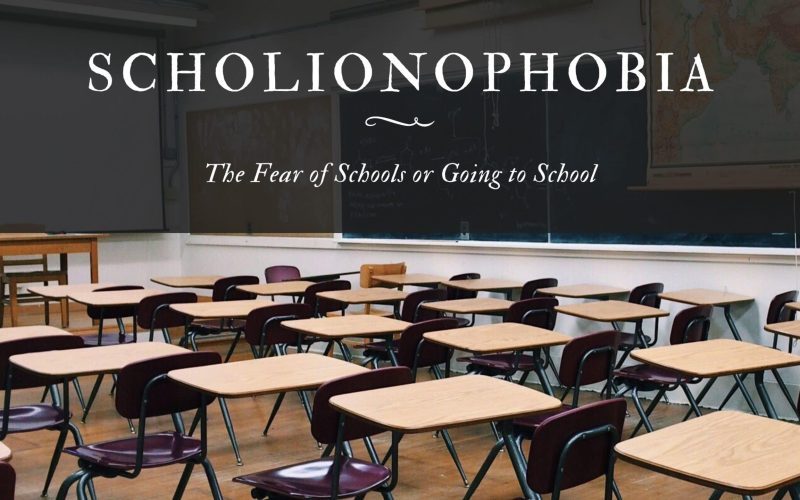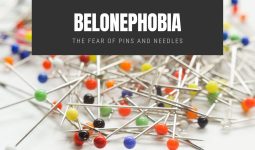Scholionophobia, also known as Didaskaleinophobia, is an uncontrollable and irrational fear of schools or going to school.
Up to 2%-5% of children of school-going age are known to have developed this condition.
The term Scholionophobia came from the Latin word “scuis,” which means “knowing,” and “Phobos,” which stands for “fear or aversion.”
In contrast, the term Didaskaleinophobia has a Greek origin from the word “Didasko,” which means “teach,” and “Phobos,” which means “fear or aversion.”
Most children of school-going age exhibit truancy towards school, and they prefer staying home and playing to going to school.
There are many reasons for this; unfortunately, scholionophobia could be one of them.
With children’s truant behavior towards school and the inability of children to react accurately (most times, they are known to overreact to everything), it is quite challenging to diagnose scolionophobia in children.
However, just thinking about school or going to school can trigger the sufferer to experience a full-blown panic attack.
Most experts believe this condition is common in children between four and six years old.
They suspect this could be a result of their first time leaving the comfort and safety of their homes.
Causes of Scholionophobia
There is no exact cause of Scholionophobia, just like others, but there are contributing factors that can lead to the development of scholionophobia.
They are:
- Unpleasant experiences in school, such as a case of bullying, shame, or ostracization from engaging in social events in school or merely playing with fellow students or pupils.
- Death in the family
- Divorce or marital struggles between parents
- Getting into school after a long time off
- Moving out or changing school
- Problems socializing with others in the school
- Performance anxiety, especially in Students with dyslexia, ADHD, anxiety, or other conditions, might affect their performance in school.
- Unsafe school environment
- Traumatic experiences such as physical and verbal abuse, sexual assaults, and human exploitation
These factors, if not handled properly, will lead to the child coming down with scholionophobia
Symptoms
The symptoms of scholionophobia manifest in two ways – psychologically and physically.
Psychological Symptoms
These are emotional and mental signs that an individual experiences, even at the mere mention of anything relating to the school.
This suggests the presence of scholionophobia in children:
- Hysterical Emotional outbursts – crying, screaming, shouting, etc.
- Having a full-blown anxiety attack
- Playing truant by pretending to be sick to avoid school.
- Persistent fear of death
- Clinginess to parents
- Fear of being left alone
- Fear of the dark
Physical Symptoms
These are symptoms that manifest physically, and they include the following:
- Dizziness
- Heart palpitations
- Dry mouth
- Excessive sweating
- Breathlessness
- Nausea
- A full-blown panic attack
Teenagers may not talk about their phobia- but they will exhibit avoidance behavior, such as making up fake excuses or pretending to avoid school.
They are likely to develop depression and react hysterically and badly.
This can be quite overwhelming for both the child and the parents.
The severity of these symptoms and the level of fear are increased by the thoughts and discussions relating to school, the sight of anything about school, or being on school premises.
These symptoms are what make the sufferer avoid anything relating to school, including the hearing of it. This condition is believed to be highly associated with other phobias.
That is, scholionophobia can result in the development of other phobias, which include fear of the dark, vampires, witches, etc.
Making the individual suffer from what we call “Complex phobia.”
A complex phobia intertwines many phobias, increasing the individual’s likelihood of getting triggered.
Treatments
Treating this kind of condition requires the collective work of the family, the school staff, and the mental health workers to overcome scholionophobia.
This condition can hinder and may cripple the child’s dream and social life.
It is incredibly overwhelming for the child that even if he or is smart, he or she won’t be able to go to school more, so learn and make friends in school.
Fortunately, this condition can be treated and resolved. In mild cases, simple tips involving listening to calm music, Positive visualization, yoga, deep breathing, and other relaxation techniques can be quite helpful in helping the individual, especially teenagers, cope with scholionophobia.
However, in extreme cases of scholionophobia, professional assistance is needed.
Your therapist can have medicines prescribed to help in the control of emotions and outbursts suffered by the child; however, children of preschool and school age should take these prescribed drugs under the guidance of parents or caregivers to avoid an overdose.
This may not be the cure for the illness, but it is helpful while the child goes through psychotherapy.
Going through psychotherapy is an excellent way of resolving any phobia.
In this case, the therapist must talk with your child or teenager. Having the child talk about his or her fears while the therapist works with the child to determine the real cause of the phobia and tackle it from there.
There are other therapeutic approaches that the therapist can apply to have our child’s phobia resolved.
These approaches include:
- Desensitization
- Hypnotherapy
Desensitization
This is the gradual exposure of the source of fear to the phonic in a setting controlled by an expert.
The therapist might start with a little talk about school before progressing to the gradual exhibit of things relating to the school.
This will make your child feel less sensitive and anxious about school. For many years, these techniques have been in practice and have been used in treating many phobias; scholionophobia inevitably responds well to this treatment.
Hypnotherapy
In hypnotherapy, your child’s subconscious mind is open to reconditioning it to believe there is nothing to fear about school.
We hope that this article has been helpful. Kindly leave a comment below.





